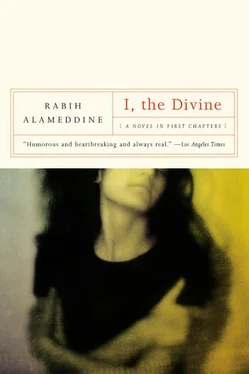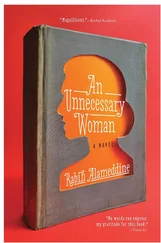I wondered what percentage of the world’s population had never seen the sun set in the Mediterranean. I remembered another afternoon, on a real beach, under a real sun.
We sneaked onto the beach, he and I. We were so young, both fourteen. It was our first summer together.
It was a public beach, not where either one of us would usually hang out. We were sure no one there would recognize us. It was less than half a mile away from the private beach club where our families swam and socialized, yet a world away. The masses on the golden sand were dressed in everything from swimsuits to full dress. The smell of lamb kebabs wafted through the still air.
The sand burned our feet through the sandals. “I know this place,” he told me. He led me running to the waterline, where the sand was wet and cool. We walked hand in hand, the first time in a week. We walked until we reached a small hill jutting into the sea. As we climbed across he said, “In Norway, they have steep hills that fall straight into the sea. The bays these hills create are called fjords.”
“Who do you think you’re talking to, dummy? I know about fjords.”
“We’ll go there someday,” he said, looking ahead, away from me. “I’ve seen pictures. It’s beautiful and very, very romantic. You’ll like it.”
We jumped down on the other side, a secluded area. “Are you sure this will work?” I asked. “Some people might come and if someone walked on the top there, they’d see us. I’m not sure this is a good idea.”
“We’ll hear them coming. Anyway, we’re not doing anything. We’re just kissing.”
We kissed and caressed until we heard people climbing the hill. It was another couple, older. They were shocked to find us there. She smiled. He glowered. They jumped down and sat facing the water with their back toward us. They whispered. They were obviously engaged to be married. Finally, she had the courage to reach over and hold his hand.
I reached over, slipped my hand under Fadi’s swimming trunks and encircled his penis. His face registered shock. “I want to do it,” he said.
“Not till we’re married.”
He kissed me and ejaculated silently.

I grew up infatuated with Sarah Bernhardt, having been named after her by my grandfather. My stepmother considered this obsession, for that is what it was, to be dangerous. She objected to my grandfather filling my head with stories of the great actress, thinking they would lead me astray.
I did not realize when I was younger how much anguish my being a tomboy caused my family. The first day I returned from school wearing makeup — I was fifteen — I was greeted with mouths agape and eyes wide, followed by effusive compliments. I ran into the bathroom and cleaned myself.
My initiation into total femininity was conducted by Dina, my best friend. She took a wardrobe consisting of jeans and sweatshirts and converted it to fashionable dresses and eye-catching skirts. She took a face that had never had a dab of makeup and trained it to accept powdered and creamy intrusions. She took a girl who was notorious for being the best soccer player in school, better than the boys, and turned her into every schoolboy’s fantasy. In my stepmother’s eyes, Dina was a goddess.
Dina’s arrival at school set a new standard of sexual tension among the boys. She was only the second girl in my class. I was one of the first five girls to enroll in the school when it was integrated. That first day, she was fully made up, wore a disturbingly short skirt and an even tighter shirt, which accentuated her cusped breasts. By the first day of school, she had earned a nickname that would stick: Crotale, after the French missiles.
It did not take long for us to become friends. She shattered my misconceptions about her within the first week. I had not known anyone who dressed like her. Because of the way she presented herself, I had mistakenly assumed she was dumb. Her grades displaced mine as the second highest. The highest belonged to my boyfriend at the time, Fadi, but his should not be considered because they were the product of a rare intelligence. I also thought she would be a tramp. She was not, of course, since she did not care for boys at all.
Dina and I grew ever closer. I was transformed, both by her example and by her free-flowing advice. I had always associated concerns about personal appearance with frivolity, and I had no role models to speak of. Who would want to look like Indira Gandhi or Golda Meir? In reality, the only true model of a successful woman was the Divine Sarah. Dina came into my life, intelligent, ambitious, and beautiful in a dress. While she taught me how to apply makeup, we shared our dreams of engineering school, of having our own company, of building a true skyscraper, not that ugly crap the Holiday Inn was forcing on Beirut.
The physical transformation was the easier part. Luckily, I am blessed with a good figure, and my soccer playing proved to be helpful in that department. My stepmother, thrilled by the metamorphosis, showered me with money to go shopping with Dina. The effect on the boys in school, and on Fadi in particular, was thrilling.
Unfortunately for Fadi, my transformation was not only a physical one. With the appearance of Dina, Fadi remained my boyfriend, but he was no longer my best friend. I found it easier to confide in Dina. That was not all, though. Dina and Fadi were opposites in many ways. Fadi was a leftist, a communist really. Dina, on the other hand, was a diehard rightist, a follower of Ayn Rand’s objectivist philosophy. Fadi was a Sunni Muslim and Dina was Maronite Christian.
Whereas in America most fifteen-year-olds worry about who they are going to take to the prom, in Lebanon we worried about politics. The representatives we elected to our student board were all divided among party lines, right or left. Until Dina showed up, I had voted left. I was not as committed a communist as Fadi, but I had read Marx’s Communist Manifesto and believed strongly in the Palestinian struggle against Israel. I marched in demonstrations, attended rallies, and during one demonstration picked up sharp stones for the boys to throw at the police. I must admit that I also derived pleasure from my stepmother’s concern about my communism.
Our world was changing, even though at the time, we had no idea how destructive the change was to be. The civil war was starting, sides were being taken, and debates were heated. I began to wonder why the Palestinian struggle meant fighting the Lebanese. I did not particularly like the Maronites, but at least they were nationals. Dina gave me Ayn Rand’s books and I was transformed into a budding capitalist, the poor be damned. I read The Virtue of Selfishness. Fadi did not take that transformation well. We stayed together for a couple of years after that, perhaps because we had nothing better to do and had no idea how to break up, but the relationship was not the same. It is ironic that our relationship lasted for two years, until my resolute Randian stance began to crumble. At seventeen I read Kant’s Critique of Pure Reason, the book Ayn Rand blamed for the decline of Western civilization, and loved it. I dropped Ayn and Fadi at about the same time.
Dina taught me about myself. The daughter of an analyst, she posited many psychological theories about our lives. She thought my whole tomboy phase mirrored my father’s wish for a boy.
Dina told me that a photograph of Sarah Bernhardt greeted every troubled and neurotic patient who entered Sigmund Freud’s office. A photograph of the Divine Sarah greeted all my neurotic friends as they came up the stairs to my flat in San Francisco as well. I do not know why Freud had her in his office, whether he considered her a symbol of the eternal feminine or of the neurotic woman. If it were Carl Jung’s office, I would suggest the former, but since it was Freud’s, I lean toward the latter.
Читать дальше













